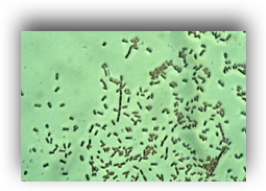Soil Enhancement & RestorationA Rutgers-led team has discovered how plants harness microbes in soil to get nutrients, a process that could be exploited to boost crop growth, fight weeds and slash the use of polluting fertilizers and herbicides.
"People have speculated that plants can get nutrients from microbes, but mechanisms for transfer of nutrients from microbes to plants have been elusive -- until now," he said. "Understanding how this process works may allow us to grow plants without fertilizers or with minimal fertilizers and without herbicides. We can manipulate the system to increase the growth of desirable plants and decrease the growth of undesirable plants, potentially using the same microbes."
|
|
|









